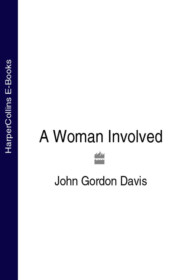По всем вопросам обращайтесь на: info@litportal.ru
(©) 2003-2024.
✖
Roots of Outrage
Автор
Год написания книги
2018
Настройки чтения
Размер шрифта
Высота строк
Поля
Mahoney grinned. ‘And … ?’
‘No option of a fine, this time, with my criminal record. A straight fifteen days.’
Fifteen days. And, when she was released from prison that time, not only were the press there to meet her but her father.
‘But what did your parents think of you?’
‘Oh,’ she said, ‘you know what parents are like … My family was very conservative in that they’d come up the hard way, and even though they were bitter about apartheid they didn’t want to rock the boat. When their darling daughter started rocking the boat they were so worried – for me. They wanted the best for me, to finish school and take over the business and get married to a nice high-caste Indian boy, and here I was, sixteen years old and seven criminal convictions behind my name. Not good. So, when the God-Botherer waltzed out of prison the last time, beaming for the pressmen’s cameras, there was my father with an air ticket to England, to finish my schooling there.’
‘And how did you feel?’
‘At sixteen? With my eyes full of stars about thrashing the apartheid system? I’d already spent over thirty days in jail for my various offences – I was becoming an old hand at it, and I was something of a celebrity with the local press. I wanted to carry on. There were all these other apartheid laws I hadn’t defied yet. I still hadn’t booked a room in a white hotel. I hadn’t gone to a white cinema or played tennis on a white court. I still hadn’t gone into the Orange Free State where Indians are forbidden to set foot even in transit. And,’ she grinned, ‘I still hadn’t screwed a white Afrikaner policeman.’
‘Did you really intend to do that?’
‘Well, I was still a virgin. But I thought it was a bloody good idea in principle – hoist the bastards on their own petard. And I had a few chances, by the way. Anyway, although my parents were generally very supportive, they’d had enough – particularly my poor mother. So, off to England I was sent to finish my education.’
Patti Gandhi, head prefect in her final year, leading light in the debating club, victrix ludorum. And, oh, she loved it in England. Not denied buses, tea rooms, cinemas, restaurants, hotels, not told to stand in another queue at the post office or bank or railway station. ‘What a novelty! I was like a kid in a candy store. Just being treated like an ordinary person.’ But, ah yes, an exotic one: there were advantages to being a non-white in lily-white England, standing out in a crowd: the head-turns, the wolf-whistles. ‘I felt like a million bucks for a change, knowing I could date any boy who asked me, dance with anybody, hold his hand legally – kiss him goodnight! And the girls were all super to me, invited me home for weekends, and in the summer we went on coach tours of Europe and to villas by the sea – and the Europeans seemed to go out of their way to be nice to me. And the fact that I’d been to jail for defying apartheid? Oh boy, that made me a heroine in the girls’ eyes.’
It made her a heroine in Mahoney’s eyes too. South Africa had plenty of liberals who said apartheid was cruel, economically unfair, and so on, but who did nothing about it – all talk and no action, as Patti said: but here was a sixteen year-old Indian girl who did, and did her talking in court: it took a hell of a lot of courage to take on the South African system. And when she went on to university she was even more of a hero – and belle of all the balls. God, you’re beautiful, Mahoney thought as he looked at her photograph albums of those days: Patti Gandhi being punted down the river; Patti yelling her head off at the Oxford-Cambridge boat race; Patti in a bikini on the French Riviera; Patti in ski-gear in the Austrian Alps; Patti in her graduation gown.
But when she returned to South Africa, she wasn’t a heroine anymore, she was a criminal. As the sergeant from BOSS, who was waiting for her at the airport, warned her: ‘Don’t think you can come back here with your fancy English ideas, hey, jus’ remember this is a white man’s country, hey, and we’ll be waiting for you before you make any more bleddy trouble, hey!’
‘And what did you say?’
‘Just smiled sweetly and said it was lovely to be home – what else can you say to an oaf like that, his English is too poor.’
‘But why had you come back? You must have been able to get a good job overseas.’
‘To make trouble …’
The first trouble she caused was her announcement that she was entering the Miss South Africa contest. ‘Not because I wanted to flaunt my flesh, but just to cause a furore.’ And cause a furore she did, for by law only white girls could show off their bodies for the Miss South Africa crown. Until the big night when that was decided, however, the law could not stop her hollering her intentions from the rooftops – although a certain Brigadier van Wyk of the South African police, contacted by the Star, warned darkly that ‘if Miss Gandhi insists on making a spectacle of herself the police will not fear to act,’ and a member of the public prosecutor’s staff was moved to ponder aloud to the press about ‘the point at which an act of preparation, which is not an offence, becomes an act of consummation in a case like this – which is an offence.’
The press loved it, and the cartoonists had a field day. Overnight Patti Gandhi became a household name and face, her glamour shots drooled over in every newspaper in the land – and the international press was quick to give South Africa another tongue-lashing. Day after day the press gleefully published different pictures of her, stacking her up against other contestants, doing opinion polls, inviting letters, until an honourable member of parliament, Mr Koos van der Bergh, was moved to demand of the Minister of Police why the government was not ‘putting a stop to this cheeky provocation?’ But Miss Gandhi had not yet broken the law, the Minister of Police explained to honourable members, she would only be guilty of a crime when she physically showed up at the City Hall for the contest – ‘which would be a contravention of the Separate Amenities Act, because the City Hall is for whites only – honourable members need have no fear that Miss Gandhi will be allowed to flout the laws of the land with her ridiculous behaviour.’
‘Why not use the Riotous Assemblies Act?’ the Cape Times ridiculed, ‘which would enable the police to tear-gas and baton-charge Miss Gandhi …’ ‘… and water-cannon to cool down her admirers,’ the Standard in London added gleefully, while the Natal Mercury considered the Terrorism Act more appropriate for such serious cases of creating an ‘explosive’ situation, alternately ‘spreading alarm and despondency’ amongst the other contestant. The Argus was of the opinion that a clear-cut case lay against Miss Gandhi under the Suppression of Communism Act for impudently implying she was as pretty as the next South African.
And then, predictably, came the registered letter from the organizers of the contest regretting to inform Miss Gandhi that they could not accept her entrance application because that would be contrary to the laws of South Africa; but Miss Gandhi did not receive it because she had disappeared. She did not reappear until the big night, when she arrived in a limousine at the stage door of the City Hall, to roars of applause from hundreds of fans and the flash of pressmen’s cameras, ‘looking like a million bucks’ as the Argus put it; ‘absolutely gorgeous’ – the Star; ‘pure long-legged, busty appeal’ – the Rand Daily Mail; ‘devastatingly beautiful’ – the Cape Times; ‘Wow wow wow’ was how Drum put it. She swept through them gaily, flashing brilliant smiles and blowing kisses. And the commotion when the police arrested her surpassed Parti’s wildest dreams.
She had expected to be arrested the moment she set foot across the whites-only City Hall stage-door: as the Star put it, the stupidity of the police was ‘crass and complete’ because they wanted to make a ‘show of their kragdadigheid. They wanted all the world to see they would put up with no nonsense from pretty Indian lasses who tweaked apartheid’s nose; but instead they only showed it up for the cruel, tactless, boorish system it is …’ The South African police waited and let the glittering pageant get under way. The show had been going for some time when the doors burst open and into the pageant strode a squad of very serious members of the South African police, and up out of the audience rose a dozen plain-clothes men – ‘twenty beefy South African policemen to arrest one young unarmed Indian girl’ (Time Magazine).
The commander strode up onto the stage, took over the microphone and announced that the proceedings were in contravention of the Reservation of Separate Amenities Act because there was a non-European on the premises. Policemen were hurrying backstage. Patti Gandhi had been standing with one of the organizers in the wings, fully clothed, watching the proceedings; now, as cops swarmed towards her, she gave a girlish cry and fled, crying ‘Help!’ She ducked behind the curtains and then burst onto the stage. She ran across it, dodging lunging policemen, and plunged into the opposite wing. She dodged around the curtains again then burst back again, shrieking ‘Save me!’ She made sure that she was arrested centre stage. Cops grabbed her from all sides. The audience was in uproar. And as Patti was led off the stage, gleefully crying ‘Please don’t hurt me!’, the punch-up started.
Midst the cheers and applause from the government supporters and the boos and cat-calls of Patti’s supporters, the first fist flew and within moments one corner of the hall was a mass of brawling. It took the police ten minutes to restore order. And the press loved it. As the Star put it: ‘They don’t realize it, of course, in their mindless lust for kragdadigheid, but the authorities played right into Miss Gandhi’s hands and they could not have made greater fools of themselves, could not have exposed their beloved apartheid to greater ridicule and contempt, if they’d sent in the Keystone Cops …’
And now, last month, the cops had played into her hands again. Oh, it was going to be a humdinger of a story when he’d worked it through. It was nearly midnight by the time he’d finished making his notes about Sergeant van Rensburg of the Vice Squad and Major Kotze of the Bureau of State Security – and he was finally allowed to see all the photographs. But only briefly, only long enough to be satisfied that they existed. It was with the greatest of effort that he tore his gentlemanly eyes off them and handed them back to her. ‘Okay?’ she said. No, it wasn’t okay. Oh, the rampant sensuality of that gorgeous golden body in the act of fucking – it was enough to make your eyes water, enough to break his heart. He ached to feel that gorgeous body under his … And now it was time either to leave or make that pass, and he had drunk enough to be emboldened.
‘Right,’ she said as she put his notebook into the big envelope with the photographs, ‘I’ll look after all this until you can come back to start writing. When? This weekend?’
Oh, the whole weekend with her? ‘Fine.’
‘Okay, I’ll send the van to the same place on Saturday morning. Well, you must be tired. Shall I call the driver?’
And it was now or never, and he stood up and took her in his arms ardently.
And, oh, the wonderful feel of her breasts and belly and loins crushed against him, the wonderful feel of her wide warm mouth, the glorious scent of her and the smoothness of her satiny skin; with all his heart and loins he had to possess her, hurl himself on top of her and splay those gorgeous thighs and thrust his grateful way up into the glorious depths of her; his hand went to her breast – oh the lovely fullness of it – and his other slid down her satiny back – then suddenly he realized she was laughing into his mouth as they banged against the wall.
She broke the kiss and giggled into his shoulder: ‘Oh, Luke …’ Her arms hung at her sides, her eyes bright with mirth. ‘You’re terribly attractive, but you’re so artless.’
Artless? But terribly attractive! ‘Me artless?’
She burst into new giggles and walked towards the telephone. Then she turned to him and tried to put on a straight face: ‘Luke, you know that there’s no future in this … mutual attraction?’ She had to work at it to suppress her grin: ‘You’ve just seen pornographic pictures of me …’ Then her face failed her and she burst into giggles again. ‘Oh, it’s all terribly funny, but don’t you realize what a … tart I feel when you make a grab at me straight after that?’
There was a silence: Patti’s eyes moist, Mahoney blushing, his heart knocking with the implied promise. ‘I’m sorry.’
‘Please don’t be too sorry!’ And she reached for the telephone, giggling.
He was driven back to town in the back of the van, riding on air. ‘Please don’t be too sorry!’ And, oh, the wonderful brief feel of her; it seemed he could still taste her mouth, her lipstick, smell her scent. Oh, it felt like love. He could not wait for the weekend. It had to happen next weekend. And he did not care if he was playing a dangerous game.
It did happen the next weekend. And when it did, it was even more wonderful, more exciting, more erotic, more exotic than he had imagined: he was trembling with desire as he took her in his arms and crushed his mouth against hers, and, oh, the wonderful feel of her again, and this time her loins were pressed against his, she was kissing him as hard as he was her, and he peeled her dress off her golden shoulders, and, oh, the bliss as he cupped her beautiful breasts. Her dress fell off her hips in a silky heap, and there she stood, naked but for her brief panties, her glorious thighs golden and perfect, and he lowered himself to one knee and kissed down her belly and thighs, and then peeled the panties off her rounded hips, and he buried his mouth into her soft sweet pubic triangle. And she sighed, then she turned out of his embrace and walked to the sofa; she sat down, then she lifted her knees and she opened her long golden legs to him.
PART III (#ulink_d9250ec8-a31e-5557-b699-e8c064ada690)
SOUTH AFRICA BECOMES A REPUBLIC
CONGO CHAOS CONTINUES
KENYA, TANGANYIKA, UGANDA GRANTED INDEPENDENCE
CUBAN MISSILE CRISIS
TROUBLE IN RHODESIA
ANC ANNOUNCES ARMED STRUGGLE
NELSON MANDELA ARRESTED
POLICE FIND ANC UNDERGROUND HQ
12 (#ulink_c57568ad-bb70-5b8a-91db-a85473d6445c)
A lot of things happened in the two years that followed. Prime Minister Hendrik Verwoerd led South Africa into becoming a republic, severing its ties to the Queen and the Commonwealth; the Afrikaner had thrown off the British yoke at last, the Boer War had finally ended and there was an orgy of emotion. In Kenya the last of the Mau Mau had been wooed out of the forest with an amnesty and a promise by Britain of independence, which caused outrage amongst the settlers. Tanganyika was given its independence, for the British government had lost its stomach for fighting. Immediately a new Marxist government began collectivization and villagization and communization; America was alarmed, the USSR applauded and South Africa said: ‘I told you so.’ Uganda was granted its independence and Milton Obote, the new prime minister, sent his army, under the command of a sergeant major named Idi Amin, to blast King Freddy, the popular monarch of Buganda, out of his throne and palace. America wrung its hands, the Soviets rubbed theirs and South Africa said ‘I told you so’ again. In Ghana the Great Redeemer continued throwing his opposition into jail. Nigeria was granted independence and immediately there was a military coup, the first of many. In the United Nations President Khrushchev banged his shoe on the table and sent Cuba intercontinental ballistic missiles to be aimed at America. In the Rhodesian Federation the black nationalists sent their youth about burning mission schools and dip tanks, maiming cattle and throwing petrol bombs. In the Congo chaos reigned supreme, tribalism and Marxism and nihilism and cannibalism and black magic, and Moise Tshombe defended the secessionist Katanga against this chaos with white mercenaries. In South Africa, the Spear of the Nation, under Nelson Mandela, started setting off bombs. The rival PAC sponsored a terrorist organization called Poqo, which means We go it alone, and random murders of whites began. The government responded with a new raft of tough legislation, the press was curbed and suspects in police custody began having fatal accidents. It was a bloody, frightening time in Africa as the colonial powers withdrew with reckless haste, and to many people all over the world the South African kragdadigheid seemed the only way. It was the start of the really bad times.
But to Luke Mahoney they were wonderful, exciting, happy times. And when they ended in a crack of thunder, in shock, in desperation, in running for his life, it was all the more heartbreaking because they needn’t have ended that way. In the years that followed he never ceased to remember the happiness of those days. And the unhappiness.
The happiness of being head over heels in love; the happiness of knowing he had one of the most beautiful women in the world to love; the excitement of knowing that tonight they were going to make glorious, riotously sensual love. And there was the excitement of danger, of delicious forbidden fruit – the sheer fun of getting away with it; the breathtaking joy of making love in the apartment above her emporium, with the tailors working below, the telephones ringing; the thrill of smuggling her into The Parsonage for quickies during the afternoons, the excitement of stolen secret hours, sometimes whole perfumed nights.
The stolen nights were mostly on the farm. He was allowed to know where it was now; he drove himself, but always by a different circuitous route, always watching the rear mirror. Although she had neutralized the Vice Squad, or at least Sergeant van Rensburg, it was unwise to spend the night together in her apartment above her shop, and The Parsonage was out of the question because although he trusted the boys he could not trust the girls who emerged in the mornings. The farm was the only place they could safely do it. And did they do it? Oh, the anticipation of waiting for the weekend, the excitement of driving out by roundabout ways, then, when he was halfway to Pretoria, doubling back by other roads to Buck’s Farm. He drove up to the cottage, grinning with anticipation, and the front door burst open and out she came, looking like a million bucks, a laugh all over her lovely face. And his heart turned over each time. And, oh, the wonderful feel and scent and taste of her. And, oh, the joy of being out in the open again, for nobody to see …











